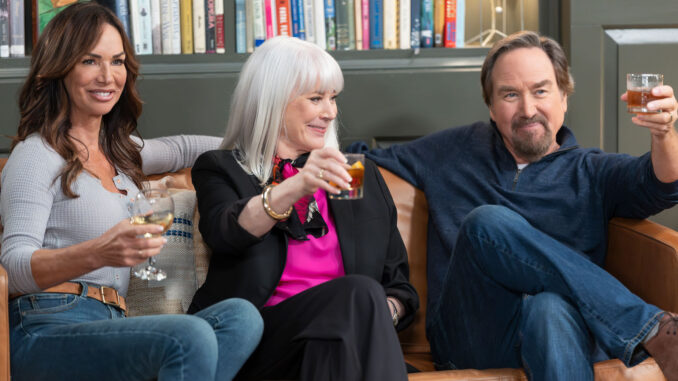
The digital ether crackled with a familiar yet startling image: a workbench, glinting tools, and a silhouette that could only belong to one man. Then, a voice, unmistakably raspy with age and a hint of that signature smirk, declared, "Well, it’s been a while, hasn’t it?" The title flashed across the screen: Shifting Gears (md02). And there they were – the Home Improvement cast, reunited after 25 years. For a generation who grew up with Tim "The Tool Man" Taylor, Al Borland, Jill, and the boys, it wasn't just a trailer; it was a time warp, a collective gasp, and a sudden, overwhelming wave of nostalgia that promised to improve not just a home, but the heart.
The illustrative power of this reunion lies in its ability to tap into a universal human experience: the relentless march of time, and the comfort found in enduring connections. The trailer, even in its brief glimpses, painted a picture of what two and a half decades can do. Tim Allen’s Tim Taylor, while still possessing that mischievous twinkle, carried a few more lines etched around his eyes, a little more gravitas in his stride. Richard Karn’s Al Borland, with his now silver-flecked, voluminous beard, radiated a similar warmth, the quintessential flannel-clad sidekick, perhaps a little wiser, but no less amiable. And the boys – Brad, Randy, and Mark – were no longer awkward teenagers but grown men, their broad shoulders and independent gazes reflecting lives lived beyond the Tool Time set. Their presence was a mirror, reflecting our own journey from childhood to adulthood.
What does "Shifting Gears" truly imply, beyond the obvious mechanical pun? It suggests adaptation, change, and the continuous recalibration of life's trajectory. Home Improvement always had a subtle underlying message beneath the grunts and explosions: the importance of family, communication (or lack thereof, leading to hilarious misunderstandings), and learning to "get more power" not just from a supercharged engine, but from understanding, empathy, and love. Now, 25 years later, the "gears" they're shifting are undoubtedly more profound. They've shifted careers, relationships, perhaps even their own perspectives on what "power" truly means. The trailer hints at a new kind of project, not just a house remodel, but possibly a life remodel, confronting the challenges and joys of aging, parenting adult children, and navigating the ever-changing landscape of modern life.
The illustrative magic of this reunion is also in the comfort it promises. In a world that often feels increasingly fragmented and uncertain, the return of familiar faces from a beloved past offers a unique solace. The Home Improvement set, particularly the Taylor household and the Tool Time workshop, was a sanctuary of relatable chaos and warmth. Seeing Tim and Al banter again, hearing Jill's voice of reason, or witnessing the evolved dynamics between the Taylor brothers, is like stepping back into a comforting, well-worn sweater. It reminds us that some bonds endure, that laughter can bridge any gap, and that even after two decades, the essence of who people are, and what they mean to each other, remains. The trailer doesn't just show us actors playing characters; it shows us the enduring legacy of a fictional family that, for many, felt as real as their own.
Ultimately, the Home Improvement cast reunion, heralded by the "Shifting Gears" trailer, is more than just a comeback; it's a cultural touchstone. It illustrates the enduring power of television to weave itself into the fabric of our lives, marking time and holding memories. It’s a testament to the idea that some stories, like some homes, are built to last, to weather the seasons, and to offer comfort and a sense of belonging whenever we return to them. And perhaps, through their evolved characters and new narratives, they will once again teach us, not just how to improve our homes, but how to continually improve our lives, one shifted gear at a time.
